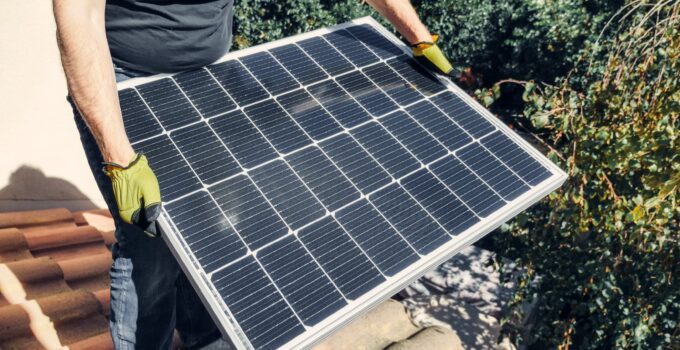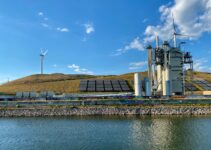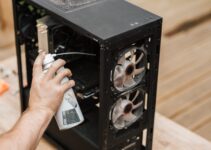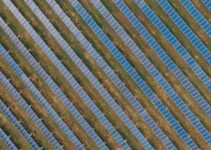Solar panels are a popular and environmentally friendly way to generate electricity. However, like any other equipment, they require regular maintenance to ensure optimal performance. One common question that arises is: How often should solar panels be cleaned?
In this ultimate guide, we will explore the importance of regular solar panel cleaning, factors affecting the frequency of cleaning, signs that your solar panels need cleaning, DIY vs. professional cleaning, recommended cleaning techniques, and how regular cleaning can help maintain optimal performance.
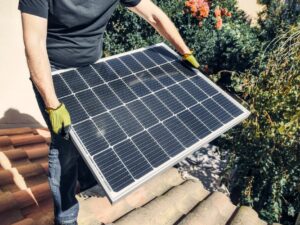
Importance of Regular Solar Panel Cleaning
Regular cleaning of solar panels is essential to maintain their efficiency and maximize their energy generation. Over time, dust, dirt, bird droppings, leaves, and other debris can accumulate on the surface of the panels, blocking sunlight and reducing their ability to convert solar energy into electricity.
This buildup can lead to a significant decrease in energy production, resulting in a loss of potential savings on your energy bills.
By regularly cleaning your solar panels, you can ensure that they operate at their full capacity. This not only maximizes their energy output but also extends their lifespan, saving you money in the long run. Additionally, regular cleaning allows you to identify any potential issues or damages early on, preventing further damage and costly repairs.
Factors Affecting the Frequency of Solar Panel Cleaning
The frequency at which you should clean your solar panels depends on various factors. Here are some key factors that can affect the cleaning frequency:
1. Location
The location of your solar panels plays a crucial role in determining how often they need to be cleaned. If you live in an area with high pollution, dust, or pollen levels, you may need to clean your panels more frequently.
Similarly, if you live in an area with frequent rain or strong winds, the panels may require less frequent cleaning as natural elements can help keep them relatively clean.
2. Surrounding Environment
The surrounding environment also influences the cleaning frequency. If your solar panels are located near trees or shrubs that shed leaves or debris, you may need to clean them more often. Similarly, if your panels are exposed to bird droppings or other animal waste, regular cleaning becomes even more important.
3. Seasonal Variation
The frequency of cleaning may also vary with the seasons. In regions with distinct seasons, panels may require more frequent cleaning during dry and dusty seasons compared to wet or rainy seasons.
4. Panel Tilt and Orientation
The tilt and orientation of your solar panels can affect how much debris accumulates on their surface. Panels installed at a steeper angle or facing south may shed dirt and dust more easily, requiring less frequent cleaning.
Signs that Your Solar Panels Need Cleaning
While regular cleaning is recommended, certain signs indicate that your solar panels may need immediate attention. Keep an eye out for the following signs:
- Reduced Energy Production: If you notice a significant decrease in energy production from your solar panels, it may be a sign that they are dirty and in need of cleaning. Monitoring your energy output regularly can help you identify any sudden drops.
- Visible Dirt or Debris: Inspect your solar panels visually to check for any visible dirt, dust, bird droppings, or other debris. If you can see a layer of grime on the surface, it is a clear indication that cleaning is required.
- Uneven Output: If some of your solar panels are generating less electricity compared to others, it could be a result of uneven dirt or debris accumulation. Cleaning the affected panels can help restore balance and improve overall energy production.
DIY vs. Professional Solar Panel Cleaning
When it comes to cleaning your solar panels, you have two options: DIY cleaning or hiring a professional cleaning service. Here are some factors to consider:
- Cost: DIY cleaning is generally more cost-effective, as it only requires basic cleaning tools and materials. However, if you have a large array of panels or if they are difficult to access, hiring professionals may be a better option.
- Safety: Cleaning solar panels can be a risky task, especially if they are installed on the roof or in high, hard-to-reach areas. Professionals are trained to handle such situations safely, minimizing the risk of accidents or damage to the panels.
- Efficiency: Professional cleaning services have the necessary equipment and expertise to clean solar panels efficiently. They can ensure thorough cleaning and remove any stubborn dirt or debris that may be difficult to clean using DIY methods.
Recommended Cleaning Techniques for Solar Panels
When cleaning your solar panels, it is important to use the right techniques to avoid damaging the panels or voiding their warranty. Here are some recommended cleaning techniques:
- Gentle Cleaning: Use a soft sponge or cloth to clean the surface of the panels. Avoid using abrasive materials or harsh chemicals, as they can scratch or damage the panels.
- Water Rinse: Start by rinsing the panels with water to remove loose dirt and debris. Use a hose or a bucket of water to gently wash away any surface grime.
- Mild Soap Solution: If water alone is not sufficient to clean the panels, you can use a mild soap solution. Mix a small amount of mild detergent with water and apply it to the panels using a soft sponge or cloth. Rinse thoroughly with water afterwards.
- Avoid Excessive Pressure: Do not use high-pressure water or pressure washers to clean solar panels, as they can damage the delicate surface or dislodge important components.
- Safe Access: If your solar panels are installed on the roof or in a high location, ensure that you have proper safety measures in place before attempting to clean them. If necessary, hire professionals to clean hard-to-reach panels safely.
Maintaining Optimal Performance with Regular Cleaning
Regular cleaning of solar panels is not only important for immediate energy production but also for long-term performance. By maintaining optimal cleanliness, you can:
- Maximize Energy Output: Clean solar panels can generate more electricity, helping you save on your energy bills and reduce your carbon footprint.
- Prevent Damage: Regular cleaning allows you to identify any potential issues or damages early on, helping you avoid costly repairs or replacements.
- Prolong Lifespan: Proper maintenance, including regular cleaning, can extend the lifespan of your solar panels, ensuring that you get the most out of your investment.
Frequently Asked Questions about How Often Should Solar Panels Be Cleaned?
Q: How often should solar panels be cleaned?
A: The frequency of cleaning depends on various factors, such as location, surrounding environment, seasonal variation, and panel tilt. In general, it is recommended to clean solar panels at least once or twice a year. However, if you live in a high-pollution area or have significant dirt or debris accumulation, more frequent cleaning may be necessary.
Q: Can I clean my solar panels myself?
A: Yes, you can clean your solar panels yourself. However, ensure that you follow recommended cleaning techniques and safety precautions. If the panels are difficult to access or if you are not comfortable with the task, hiring professionals may be a better option.
Q: Can dirty solar panels affect energy production?
A: Yes, dirty solar panels can significantly reduce energy production. Dust, dirt, and debris on the surface of the panels block sunlight and inhibit their ability to convert solar energy into electricity. Regular cleaning helps maintain optimal performance and ensures maximum energy output.
Expert Advice
For expert advice on how often solar panels should be cleaned, it is recommended to consult a professional solar panel installer or maintenance service. They can assess your specific circumstances and provide personalized recommendations based on your location, panel configuration, and environmental factors.
